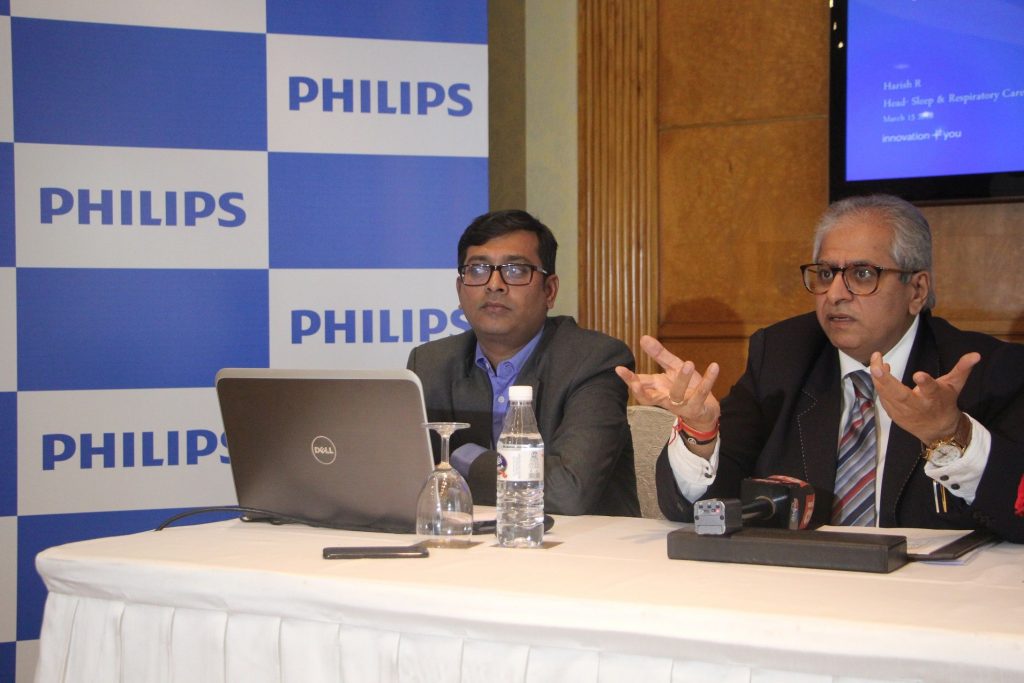World Sleep Day: Doctors stress on sleep health
To make the general public aware of the importance of sleep, the Calcutta Sleep Society hosted a press conference, in collaboration with the World Sleep Society.
Philips India releases findings of global survey on sleep disorders

Representational image. (Photo: Getty Images)
March 16 is World Sleep Day. And here is an important nugget of information for you on this day that should wake you up: good sleep is not a priority for Indians. For many, it’s because of overlapping of work hours with normal sleep time, for some it could be stress, insomnia, or any other medical condition, while for others it’s definitely distractions due to technology.
Advertisement
A recent survey has found this and more about the sleep habits of people in India and elsewhere in the world.
Advertisement
The global survey titled “Better Sleep, Better Health: A Global Look at Why We’re Still Falling Short on Sleep”, conducted by Philips with over 15,000 adults across 13 countries, highlights the need for better sleep for better health. The countries surveyed are United States, the UK, Germany, Poland, France, India, China, Australia, Colombia, Argentina, Mexico, Brazil and Japan.
On the occasion of World Sleep Day, Philips India Limited has released the findings, which it hopes will “provide directions to raise awareness and innovate interventions to ensure an important but oft-neglected aspect of health and wellbeing: sleep health”.
While sleeping well is essential for good health, more than 100 million people in the world suffer from sleep apnea, and more than 80 per cent of such cases remain undiagnosed.
The Philips global survey threw up some interesting findings. It has found that sleep isn’t a priority yet for people across the world. While 67 per cent of the respondents realised the need to sleep well, the guilt for not exercising regularly (49 per cent) or not eating healthy (42 per cent) overrode the guilt for not maintaining good sleep habits (29 per cent). In India, 66 per cent feel exercise is the top factor impacting health and well-being more than sleep.

Sixty one per cent of the respondents reported medical issues impacting their sleep. Of them, insomnia afflicted 26 per cent and snoring kept awake 21 per cent of the respondents. Worrying (58 per cent) and technology distractions (26 per cent) were the other major impediments to good sleep. In India, 19 per cent of the adults reported overlapping of work hours with normal sleep time (shift work sleep disorder) as a key barrier to sleep. Another 32 per cent of the adults from India reported technology as a barrier to good sleep.
The survey report also listed the impacts of bad sleep: tiredness, irritable behaviour, lack of motivation and lack of concentration. While 46 per cent global adults reported tiredness, 41 per cent complained of irritable behavior, 39 per cent reported lack of motivation and 39 per cent lack of concentration.
Globally, 77 per cent adults were found have tried to improve their sleep using different interventions, such as listening to soothing music (36 per cent) and institution of a set bedtime/wake-up schedule (32 percent). Among Indian respondents, 45 per cent have tried meditation while 24 per cent have tried specialised bedding.
The survey found millennials thought differently about sleep. Adults in the age group of 18-24 are less likely to have a set bedtime — 38 per cent as against 47 per cent for those aged 25-plus. They, however, reported getting more sleep each night (ages 18-24 get an average of 7.2 hours, compared to 6.9 hours among those aged 25+). They are also more likely to feel guilty about not maintaining good sleep habits (35 per cent as against 26 per cent for those aged 35+). They are also more likely to have taken steps to improve their sleep (86 per cent as against 75 per cent for those aged 25+)
“Sleep disorder is a much more serious issue than what most people understand, especially given their direct correlation with other serious conditions like cardiovascular disease, diabetes, stroke etc. In a country where snoring is traditionally associated with sound sleep, it is extremely challenging to make people aware that it is a sign of a serious sleep disorder,” said Harish R, Head of Sleep & Respiratory Care, Philips.
Philips claims to have taken a number of awareness campaigns on sleep disorders, and says people have now started realising the importance of sleep in improving their health. “We have been able to increase awareness significantly over the past few years, but there is still a long way to go,” said Harish.
Dr Sanjay Manchanda, Honorary Consultant Chairperson Sleep Medicine, Sir Ganga Ram Hospital, New Delhi, says, “Sleep is not just a time out of daily activity but it is an essential and active phase of life. Although people are becoming more educated and aware about the issues that can rise due to sleep disorders, there is a majority of the population that is still negligent. Some sleep disorders such as sleep apnea are silent killers and are usually associated with one or more co-morbidities like heart disease, diabetes, hypertension to mention a few. Majority of sleep problems are perfectly treatable and in many cases there is a dramatic change in the quality of life in the treated person.”
Advertisement